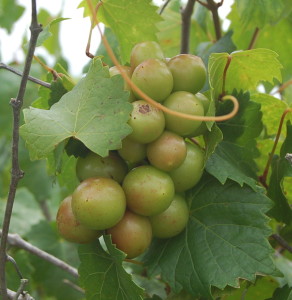SeptemberNews
Blogging Company News Email Florida Living Mobile NewsFlorida Living: 10 Facts About Florida Wines
by Vanessa Caceres
Florida may not be foremost in your mind when you think about winemaking and wine drinking—but there are several good reasons why you may want to give the Sunshine State a second thought when happy hour rolls around.
 Florida has a surprisingly brisk winemaking business. Florida actually ranked fifth in the United States in 2008 for wine production, following California, New York, Washington, and Oregon, according to federal government data.
Florida has a surprisingly brisk winemaking business. Florida actually ranked fifth in the United States in 2008 for wine production, following California, New York, Washington, and Oregon, according to federal government data.
Florida wines are likely garnering more attention because of a growing interest in sweeter varieties such as moscato and Riesling (although these varieties aren’t associated with Florida wines). Florida-produced wines frequently are made from the native muscadine grapes and tend to be sweeter. However, many Florida wineries also make drier varieties that you can try.
Here are a few more reasons why Florida’s wine business is more impressive than you might think.
1. The first production of wine in the United States actually took place in Florida, long before winemaking famously began in California. French settlers in Fort Caroline near what is now Jacksonville made the first U.S. production of wine with local Scuppernong and muscadine grapes. If you visit the historical city of St. Augustine, you’ll likely hear about this first winemaking event, which took place relatively close to the city.
Google Search Becomes Even More Personalized *
The Google search field is about to get to know you and your plans a lot more intimately.
Instead of searching your Gmail or Google Calendar for your flight number or your FedEx package number, soon you’ll be able to type in “What’s my flight status?” or “When will my package arrive?” right into Google.com, hit Enter and get personalized answers to those questions right at the top of the search results page.
 “This will help people get quick answers for things they are looking for across their own stuff,” Roya Soleimani, who works with Google’s search team, told ABC News. “Rather than making people be their own mini search engine, they are able to search in one search box – rather than dig through their email or calendar.”*From ABC News
“This will help people get quick answers for things they are looking for across their own stuff,” Roya Soleimani, who works with Google’s search team, told ABC News. “Rather than making people be their own mini search engine, they are able to search in one search box – rather than dig through their email or calendar.”*From ABC News
Simple Suggestions For Proper Nutrition
A thorough exploration of proper nutrition is not possible here. My program teaches you the fundamental principles of self-care with information. It has pulled so many of my patients from the brink of despair. But once you know the principles, you are the one who must extend them to embrace your wellness lifestyle. Even your level of self-education will evolve. Nonetheless, these simple guidelines will get you started:
· Forego Processed Foods – Minimize or avoid foods that come out of a box, a wrapper, or as a bottled drink other than water (of course, there are exceptions to the box-wrapper-bottle avoidance). Forgo baking goods (cakes, brownies, rolls, biscuits,), cereal (Wheaties, Cap’n Crunch, raisin bran), white pasta (macaroni and cheese), prepared sweets (cookies, candy bars, cinnamon crackers), sodas, juices, and other sweetened drinks.
· Perimeter Shop – The perimeter of the grocery store is filled with both the healthiest and the freshest food. Avoiding the center aisles will save you from unhealthy food and just may save you money.
Beer’s Good for Your Heart
Good news for beer lovers: a new study finds that drinking a pint a day can improve the health of your heart.
Researchers at Harokopio University in Athens found blood flow to the heart improved within a couple of hours of drinking two-thirds of a pint, or 400 milliliters of beer.
While the study was small, involving 17 nonsmoking men in their late 20s and early 30s, it adds to previous evidence that moderate beer consumption may be good for your heart.
The subjects completed three rounds of cardiovascular tests after drinking the same amount of alcohol-free beer or a measure of vodka. All three drinks had some benefit to the stiffness of arteries around the heart, and therefore the blood flow to the heart, but the arteries were most flexible after polishing off the beer.
Prior research from the University of Wisconsin in Madison has found that darker beers, such as stout and ale, may benefit the heart more than lager. The rationale is that dark beer is rich in flavonoids, which have powerful antioxidant effects.
The results of the new study were published online recently in the journal Nutrition.
Licensed Insurance Agent
Insphere Insurance Solutions®
Life | Health | Medicare | Vision, Dental & Supplemental Benefits



